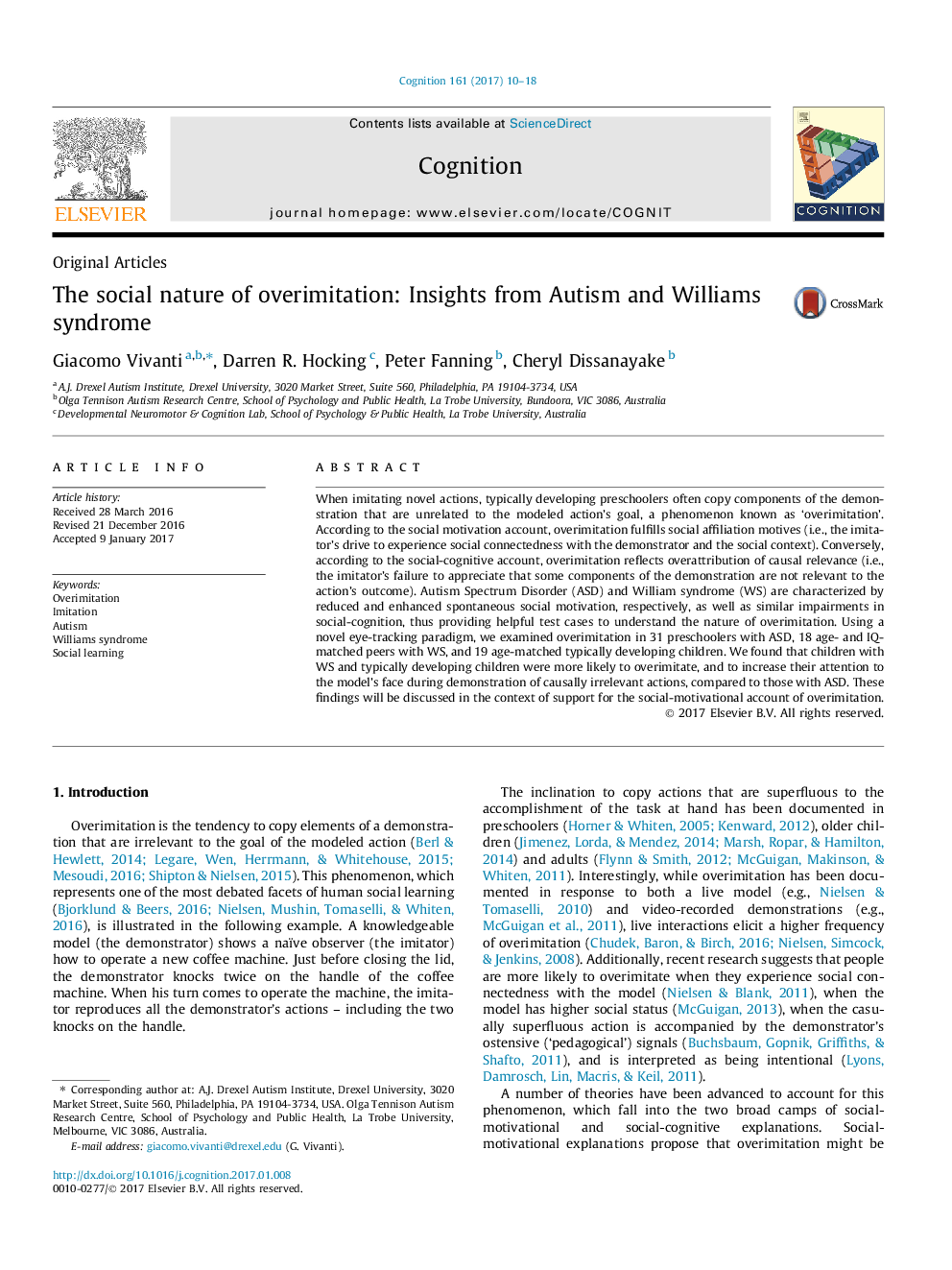ترجمه فارسی عنوان مقاله
ماهیت اجتماعی اضافی: بینش از سندرم اوتیسم و ویلیامز
عنوان انگلیسی
The social nature of overimitation: Insights from Autism and Williams syndrome
| کد مقاله | سال انتشار | تعداد صفحات مقاله انگلیسی |
|---|---|---|
| 144019 | 2017 | 9 صفحه PDF |
منبع

Publisher : Elsevier - Science Direct (الزویر - ساینس دایرکت)
Journal : Cognition, Volume 161, April 2017, Pages 10-18
ترجمه کلمات کلیدی
بیش از حد، تقلید، اوتیسم، سندرم ویلیامس، یادگیری اجتماعی،
کلمات کلیدی انگلیسی
Overimitation; Imitation; Autism; Williams syndrome; Social learning;

